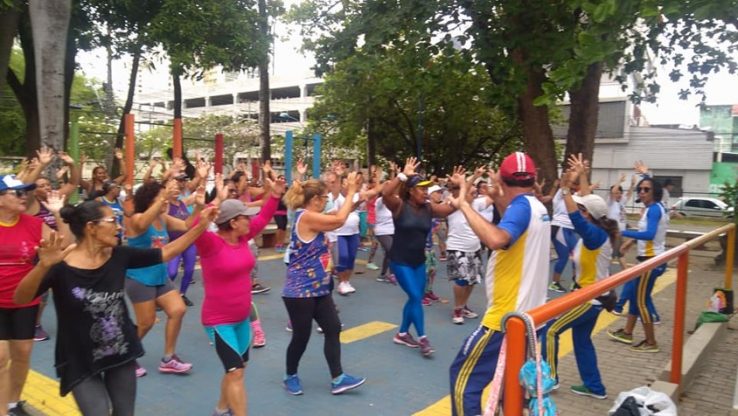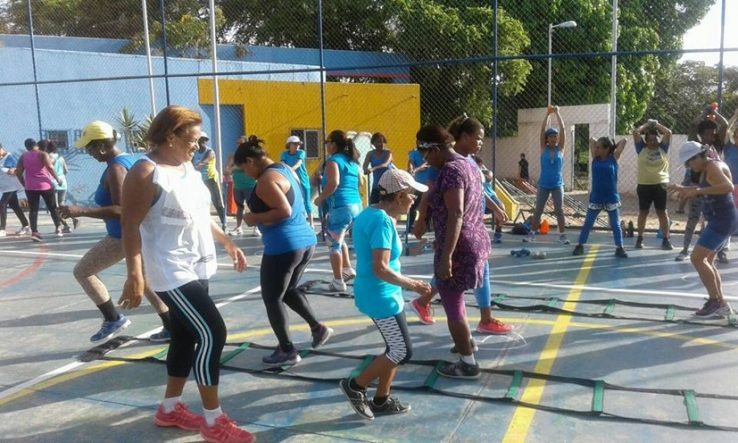by Rebecca Biason

In the city of Recife in the Brazilian state of Pernambuco, physical activity programs are on the rise as part of a health promotion strategy supported by both the Federal and Municipal governments. But are they working effectively to manage population health?
Flavio da Guarda a Professor of Public Health at the Federal University of Pernambuco is looking to determine just that, by evaluating the cost-effectiveness of such programs and determining their impact on the population, from preventing chronic disease and rates of hospitalizations, to improving overall quality of life. “If we determine the physical education program is effective, investment in it will become a health benefit for the population, and if we find it ineffective, it will guide future policy and action around changing these types of programs,” said Dr. da Guarda.
As a visiting professor at the University of Toronto’s Institute of Health Policy, Management and Evaluation, in the Dalla Lana School of Public Health, Dr. da Guarda is looking to learn from health economists and establish a partnership that helps to qualify the impact of physical activity and educational programs in Brazil.
“I was one of the first physical education professionals to obtain a master’s degree in public health in my state,” said Dr. da Guarda, “and since then I have been trying to persuade my students and colleagues to investigate the importance of these physical education programs, and the impact of these types of interventions.”
Currently, there are areas of research focused on physical activity epidemiology in Brazil, but there is there is still a gap in progress when it comes to public health policy research and program evaluation. Dr. da Guarda is determined to show others in his field that this type of research is not only necessary but valuable.
Prior to pursuing a degree in public health, Dr. da Guarda had every intention of using his background in physical education to become a swimming coach. Yet during his studies he saw early on the importance of physical education and physical activity as a health promoter. “My wife, Elisabeth Amorim, a manager of public health programs, and my supervisor, Dr. Mauro Barros, were both instrumental in setting me on the path towards public health promotion and physical education research,” said Dr. da Guarda.

In 2007, he led the implementation of a physical activity program called Se Bole Olinda, which was deemed a considerable success by the Ministry of Health. Part of this, Dr. da Guarda notes, was due to the significant participation of the community in activities such as supervised gym classes in public parks, or bike tours throughout the city. “People from other neighbourhood’s saw or heard about these activities and they took it upon themselves to ask the mayor to extend the program throughout the entire city of Recife,” says da Guarda.
Se Bole Olinda also made it possible for ordinary people to play a part in community health without the formal participation of the health department. Cyclists for example, who participated in the bike tour, took it upon themselves to expand the program to three times a week.
“In my opinion, it showed that the more exposure individuals had to these programs, the more inclined they were to incorporate physical activity into their lives.”
For now, Dr. da Guarda and his research team are looking at developing an action protocol for the city’s physical activity program as well as continuing to monitor and evaluate this intervention. As a consultant to the Ministry of Health in Brazil, Dr. da Guarda is also developing a course of evaluation and surveillance of other health programs which allows him to contribute to the decision-making process around the implementation of physical activity and education programs in Recife and other surrounding cities.
Related News

Sign up for IHPME Connect.
Keep up to date with IHPME’s News & Research, Events & Program, Recognition, e-newsletter.
Subscribe to Connect Newsletter
Get in Contact
Communications
Marielle Boutin
Email Address: ihpme.communications@utoronto.ca





